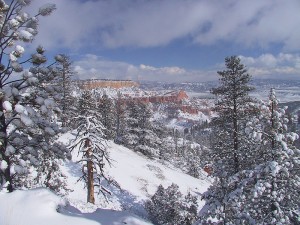Despite years of truly frightening predictions about the inevitability of climate change and its disastrous effects, the world seems to have lost traction on the issue . People are still writing stories, scientists are still debating models, activists are still acting. But previously concerned citizens now seem to be uttering a collective “meh.”
We suspect that 2008’s specter of global depression refocused attention on creating jobs, which means we want people to build and eat and spend money—most of which requires generating energy, most of which comes from fossil fuels. You pick your poison; we’ve picked CO2.
People in northern climates have a particular challenge here. If the models are right, limiting fossil fuels means higher prices to heat your home; letting climate change progress could mean warmer winters, which…face it…is hard to argue against. (And yes, no one knows whether climate change will leave us with catastrophic storms and another ice age and god knows what. But for the foreseeable future, it means January might not mean 31 days of pain.)
Of course, a warmer climate could also have a disastrous impact on all your favorite natural wonders. We are told that coral will die. Invasive species will destroy our forests and ruin our lakes. And ski seasons get shorter and less predictable. Admittedly, only a sliver of the world gives a damn about the snowpack in Utah, but those who do—especially those who have invested in resorts and condos—have quite a bit at stake here.
Some of the details are found in this letter to the North Logan (UT) Herald Journal. These two sentences are especially alarming: “I obtained 1978-2000 closing dates for our Beaver Mountain area from the operators. There were year-to-year ups and downs, but on average, spring closing dates advanced 12 days.”
Caveat: We’re not vouching for the accuracy of the facts laid out here. And picking one ski resort doesn’t give you a good picture of the long-term patterns for a state or region. And we’d like citations for assertions like this: “Scottish ski areas think they only have 10 more years to operate.”
But we’re listening. Antennae are up. More as we find it.
Photo of a winter storm at Utah’s Bryce Canyon, by the National Park Service, via Wikimedia Commons










